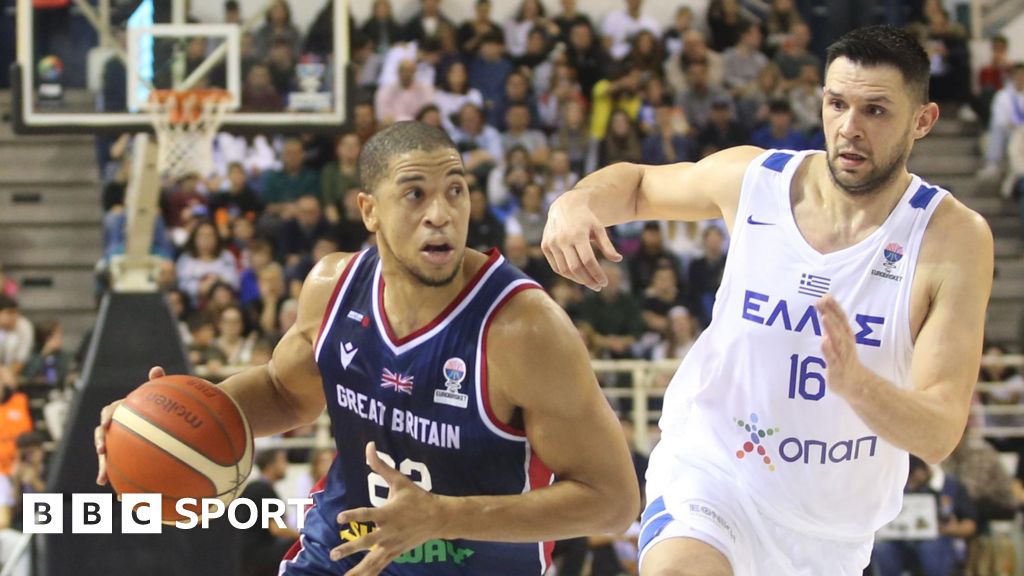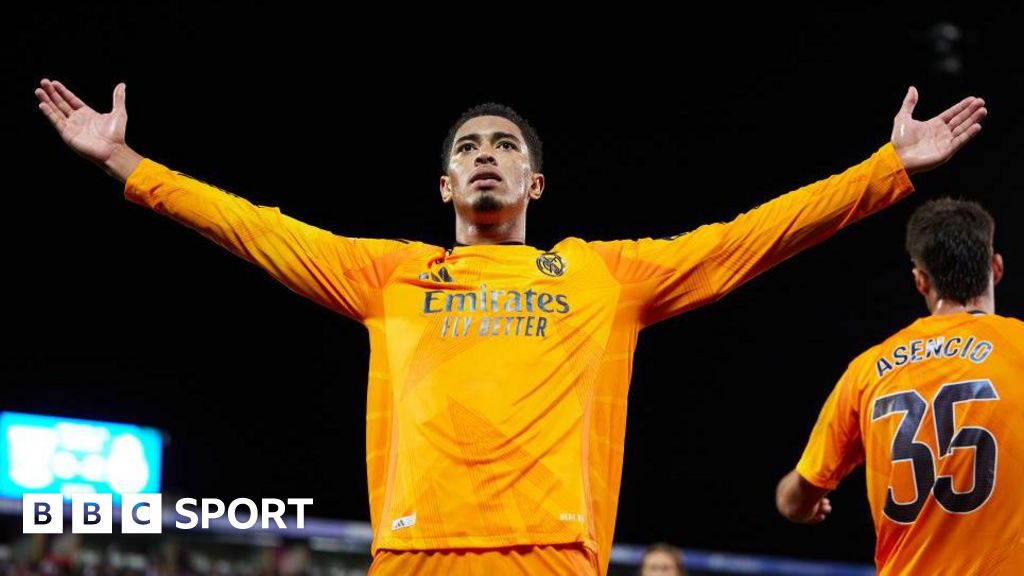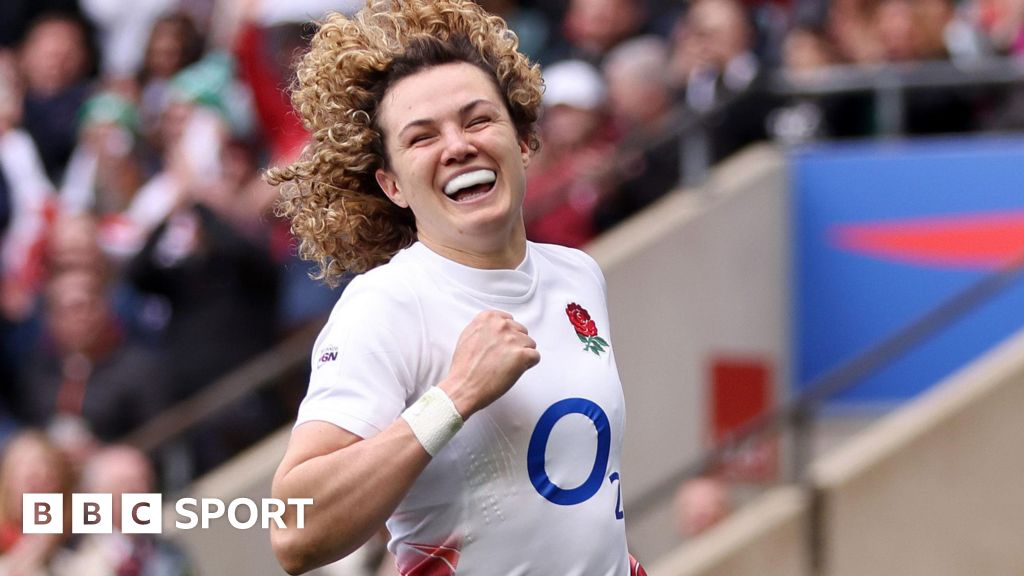ARTICLE AD BOX
When Thomas Tuchel was confirmed as the new England boss, the question was asked about where all the elite English managers were.
As debate turned to analysis of how exciting young English leaders might be produced, one name that went under the radar was Shannon Ruth, the 33-year-old head coach of Brighton's under-21 team.
He is a key part of the Brighton talent machine, with more than decade of coaching experience in which he has helped to develop the careers of players such as Ben White, Moises Caicedo, Evan Ferguson, Jack Hinshelwood and Robert Sanchez.
Caicedo, Sanchez and White alone have been sold by Brighton for nearly £200m.
"If we can't go and buy the best players in the world, can we develop the best players in the world?" says Ruth.
"I'm lucky to be able to say that there's a huge support structure around the academy, the football club, the leadership in the football club, that are committed to young players playing in our first team and becoming the best they can be."
Ruth has been the head coach of the Brighton Under-21 side since 2022 following the promotion of Andrew Crofts to the first-team set-up. His coaching work has been praised by both former boss Roberto de Zerbi and current manager Fabian Hurzeler.
Ruth's young side were thrust into the spotlight in early October when they beat rivals Crystal Palace 10-0 in a Premier League 2 (PL2) fixture.
There are not many coaches with the CV and experience that Ruth has at his age - but what does he think about the lack of English coaches at the top end of the game?
Since the European Cup was rebadged and given a makeover when becoming the Champions League in 1992, English coaches have only overseen 75 games in the competition.
That compares to the 1,038 matches that Italian coaches have been in charge of in Europe's top club tournament.
"I think first and foremost, the way the game is going we have to always have the best coaches in the best jobs," Ruth said.
"I think for us as English coaches, we maybe have to be a bit more open to going abroad and test ourselves, technically and tactically, and coming out of our own comfort zone. Coaches from overseas are really willing to do that.
"You look across Europe and there aren't many English coaches doing that.
"I think that there's an obligation on us to go and do that and test ourselves and at senior level in other competitions."
He says the under-21 ranks are becoming "a more robust education for coaches and where hopefully I think coaches can develop", with a prospect of moving into more senior roles.
Richard Bevan, chief executive of the League Managers Association, pointed out the English Football League (EFL) was still dominated by homegrown bosses who create a "significant pool of domestic managerial talent developing outside of the Premier League".
But Bevan also acknowledged that the competition at Premier League level meant younger English coaches "must also seek different ways to gain experience and demonstrate the abilities to progress their careers, both domestically and overseas".
He said: "Leagues and federations around the world present a huge opportunity for domestic coaches to gain important coaching and life experience."
Bevan said the "complex and volatile" environment in the English game makes it a "challenging" landscape for domestic managers, with "globalisation", "chronic short-termism", and "decentralisation of decision-making" all adding pressure.
Former Brighton and Chelsea boss Graham Potter was one of the coaches who was linked with the England manager job.
Potter has coached abroad with success in Sweden, while Newcastle manager Eddie Howe has not been abroad but has experience of all levels of English league football with Bournemouth.
"We went through a really positive period where some of the [Football Association's] St George's Park pathway coaches broke into senior football, like Steve Cooper," Ruth said.
"That's going to continue to grow and because the PL2 and [under] 21s programme is closer to senior football with the EFL Trophy and the National League Cup, coaches are being tested more.
"I think maybe chairmen of football clubs will now think that that is a better gauge to judge young coaches on than there being an academy game on a Monday night."
Midfielder Hinshelwood has benefited from Ruth's guidance at Brighton and the 19-year-old has featured heavily under De Zerbi and Hurzeler.
Hinshelwood's direct journey to first-team football was unlike the path of Caicedo, who had to go out on loan and play for Ruth's under-21s before he was ready for the seniors and ultimately a £115m move to Chelsea.
"Since I took the role when Roberto first came in, not a day has passed when an academy player hasn't trained with our first team," Ruth said.
"Passing players back and forth is really normal here. We believe it helps their development and believe it helps in making them get closer to impacting our first team."
Ruth would like to become a head coach at some point, but he explained that coaches should not be in a "hurry" to secure the senior positions.
"As a 21s head coach, it is a great education. You are almost a filtered-down version of a senior coach," Ruth said.
"The bits and pieces and the challenges that might land on my desk are nowhere near what might land on Fabian's."
The outlook appears bright for both Brighton Under-21s and their coach.
Ruth's team sit second in the Premier League 2 table behind Manchester City, having lost just one game.
Players are seizing the chance to impress, knowing a first-team career is achievable.
"In the last four seasons we have had more players go on to play professionally than we have released," Ruth said.
"The stat of young players falling out of football is big, we know. We're really proud that that's not the case [at Brighton] and we're trying hard to defy that stat."

 3 weeks ago
6
3 weeks ago
6








 English (US)
English (US)